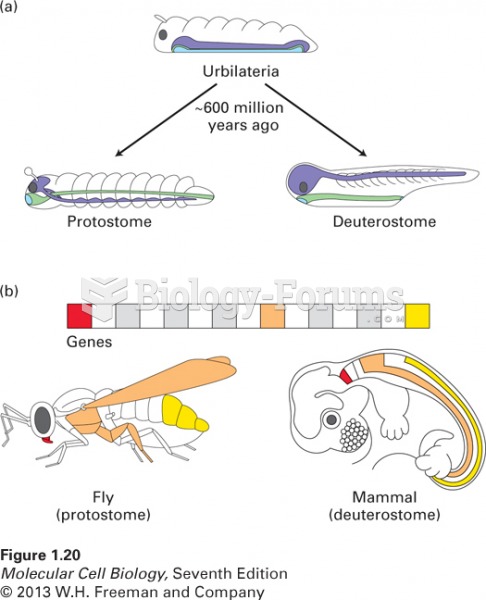|
|
|
By definition, when a medication is administered intravenously, its bioavailability is 100%.
Walt Disney helped combat malaria by making an animated film in 1943 called The Winged Scourge. This short film starred the seven dwarfs and taught children that mosquitos transmit malaria, which is a very bad disease. It advocated the killing of mosquitos to stop the disease.
The average older adult in the United States takes five prescription drugs per day. Half of these drugs contain a sedative. Alcohol should therefore be avoided by most senior citizens because of the dangerous interactions between alcohol and sedatives.
The FDA recognizes 118 routes of administration.
Human stomach acid is strong enough to dissolve small pieces of metal such as razor blades or staples.







